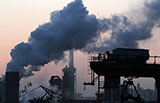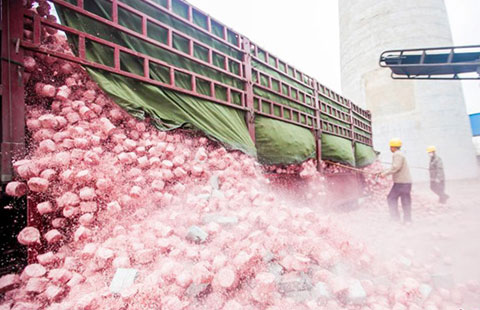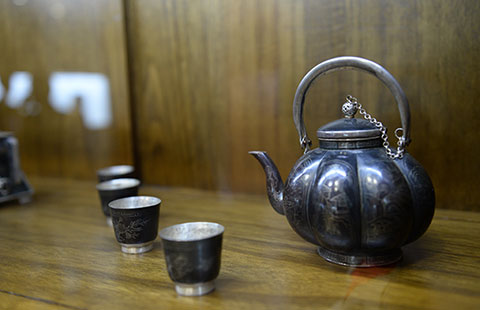Capital tightens coal quality standards, offers subsidies, to curb smog
By ZHENG JINRAN (chinadaily.com.cn) Updated: 2015-11-23 18:33Beijing plans to bar the consumption of lower-quality coal that generates excessive air pollution and provide residents outside the city core with 360 million yuan ($56.3 million) in subsidies to help pay the increased costs of better-grade coal, the capital's environmental watchdog said today.
In the city's more rural districts, 1.83 million tons of low quality coal will be replaced by higher quality coat that emits less air pollution during the heating season from November to March, the Beijing Municipal Environmental Protection Bureau said.
Better quality coal is more environmental friendly, but also more expensive, increasing the financial burden on rural residents who use coal-fired boilers to heat their houses in winter. The municipal government will subsidize the purchase of better-grade coal by up to 800 yuan per ton, greatly cutting their costs, said Li Dongwei, deputy director of the rural management bureau under the Beijing Municipal Commission of Rural Affairs.
Within three years, the capital will further reduce low-quality coal consumed in the regions beyond the Sixth Ring Road by another 1.3 million tons, Li said. It wasn't known if the subsidies would continue beyond this heating season.
The consumption of low-quality coal has been a major source of the severe smog in the northern and northeastern regions, according to the government and researchers.
Since the heating season started this month, much of the vast northern area has been hit by heavy haze, with unhealthy levels of PM2.5, the fine particulates that pose health hazards. Levels reached 1,400 microgram per cubic meter on Nov 8 in Shenyang city of Liaoning province, far exceeding the national safety level of 75 microgram per cubic meter.
The Ministry of Environmental Protection also has reviewed the consumption of coal in production facilities and services providing heating in November.
The inspection found more than 22 percent of the coal samples from Beijing failed to reach national standards on coal quality. The figure was 26.7 percent of samples in Tianjin and 37.5 percent in Hebei, the ministry said on Friday.
The ministry has urged local governments to strengthen their inspection on coal consumption in a bid to reduce the air pollutants.
- Nation to lift 50m out of rural poverty in five years
- Drone flying will face stricter monitoring
- Traffic back to normal after snow
- Left-behind girls face higher risks
- China's 400b yuan plastic surgery industry set to become world's 3rd largest
- Official: US could waver on climate
- Chinese culture watchdog keeping close eye on videogames
- Massive telescope's 30-ton 'retina' undergoes final test
- Books bridge the cross-Straits divide
- Mainland director wins best leading actor award in Taiwan







